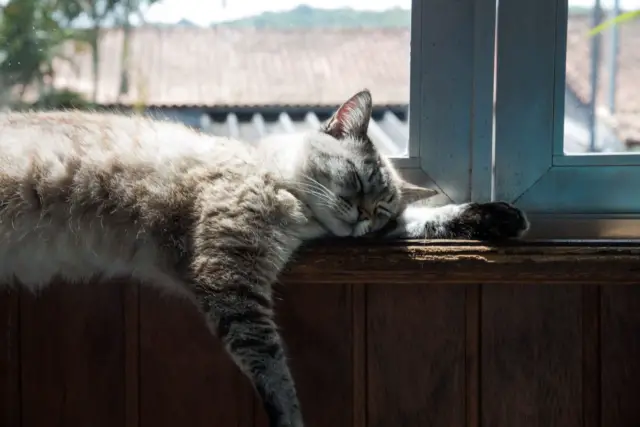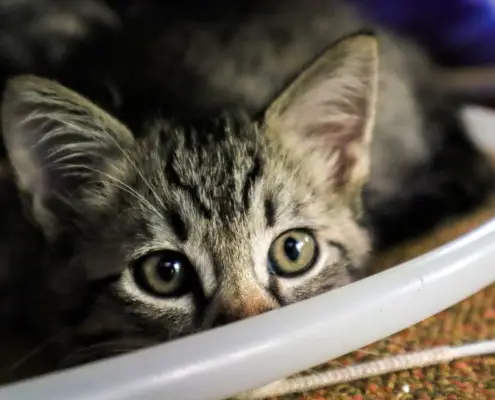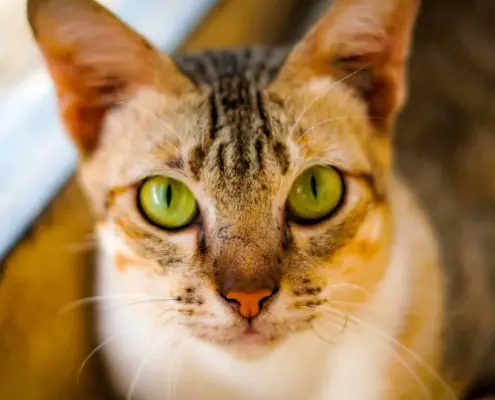
Cats have long been a subject of fascination for humans. Their mysterious and independent nature has led to various speculations about their behavior. One common misconception is that cats are inherently antisocial creatures. However, the truth is far more complex. To truly understand feline behavior, it is important to explore whether cats are social or antisocial, and the factors that influence their behavior.
Understanding Social Behavior in Cats
Contrary to popular belief, cats are not purely antisocial animals. In fact, they possess a natural inclination towards social interactions, albeit in their own unique way. Cats are known to form social bonds, both with other cats and with humans. They engage in behaviors such as grooming, rubbing against each other, and even sharing sleeping spaces. These interactions are essential for their overall well-being and provide them with a sense of security.
Factors that Influence a Cat’s Social Behavior
Several factors play a crucial role in shaping a cat’s social behavior. One of the most significant factors is their early life experiences. Kittens that have positive interactions with humans and other animals during their critical socialization period are more likely to exhibit sociable behavior as adults. Additionally, genetics also play a part in determining a cat’s social tendencies. Some cat breeds are known to be more sociable than others, but individual personality can still vary within a breed.
Environmental factors also influence a cat’s social behavior. Cats living in multi-cat households are more likely to engage in social behaviors due to the presence of companionship. On the other hand, cats that are kept in solitary environments may display more antisocial tendencies. It is crucial for cat owners to create a conducive environment that fosters social interactions to ensure their cats’ emotional well-being.
Signs of Social Behavior in Cats
Cats exhibit various signs of social behavior that indicate their inclination towards companionship. One of the most common signs is rubbing against their owners or other cats. This behavior, known as “bunting,” is a way for cats to mark their territory and establish social bonds. Cats also engage in mutual grooming, which strengthens their social connection and promotes a sense of trust.
Another sign of social behavior is a cat’s desire for physical proximity. Cats often choose to sleep close to their owners or other cats, seeking warmth and security. They may also vocalize or purr to communicate their desire for social interaction. These signs should not be overlooked, as they demonstrate a cat’s social nature and need for connection.
Signs of Antisocial Behavior in Cats
While cats do possess social tendencies, they can also display signs of antisocial behavior. This behavior is often misunderstood as cats being inherently antisocial creatures. However, it is important to differentiate between true antisocial behavior and behaviors driven by fear, stress, or territoriality.
Aggression towards humans or other animals, excessive hiding, and avoidance of social interactions are some of the signs of antisocial behavior. Cats may exhibit these behaviors when they feel threatened or overwhelmed. It is crucial to identify the underlying cause and address it appropriately to help the cat become more comfortable and sociable.
Common Misconceptions about Cats Being Antisocial
There are several common misconceptions about cats being antisocial animals. One of the main reasons for this misconception is the comparison of cats to dogs. Dogs are known for their pack mentality and desire for constant social interaction. Cats, on the other hand, are more independent and have different social needs. It is essential to understand and appreciate these differences to avoid labeling cats as antisocial.
Another misconception is that cats do not form strong bonds with their owners. While it is true that cats express their affection differently from dogs, they can develop deep emotional connections with their human companions. Cats often seek out their owners for comfort and companionship, and their presence can have a calming effect on their owners’ well-being.
The Importance of Socialization for Cats
Socialization plays a vital role in shaping a cat’s behavior and overall well-being. Early socialization is particularly crucial for kittens, as it helps them develop positive associations with humans and other animals. Exposing kittens to various environments and experiences during their critical socialization period increases their adaptability and reduces the likelihood of developing antisocial behaviors later in life.
For adult cats, socialization can still be beneficial in improving their sociability and reducing fear or stress-related behaviors. Patient and gradual exposure to new people, animals, and environments can help cats become more comfortable and confident in social settings. Socialization also provides mental stimulation and prevents boredom, leading to a happier and healthier cat.
Tips for Socializing a Cat
Socializing a cat requires patience, consistency, and a deep understanding of their individual needs. Here are some tips to help you socialize your cat:
- Start slow: Allow your cat to approach new people or animals at their own pace. Avoid forcing interactions and provide them with safe spaces to retreat to if they feel overwhelmed.
- Positive reinforcement: Reward your cat with treats, praise, or playtime when they display sociable behavior. This positive association will encourage them to repeat the behavior in the future.
- Gradual exposure: Introduce your cat to new experiences gradually. For example, if you want to introduce them to another cat, start by exchanging scents and gradually progress to face-to-face introductions in controlled environments.
- Environmental enrichment: Provide your cat with plenty of toys, scratching posts, and interactive playtime to keep them mentally stimulated and prevent boredom. A stimulated cat is more likely to engage in social interactions.
- Seek professional help if needed: If your cat displays severe antisocial behaviors or aggression, it is advisable to seek guidance from a professional animal behaviorist. They can provide tailored advice and assistance in addressing your cat’s specific needs.
How to Determine if Your Cat is Social or Antisocial
Determining whether your cat is social or antisocial requires a keen observation of their behavior and understanding of their individual personality. Some cats naturally exhibit more sociable behavior, while others may be more reserved. It is important to respect their boundaries and provide them with the appropriate socialization opportunities based on their comfort level.
If your cat actively seeks out social interactions, engages in mutual grooming, and shows a desire for physical proximity, it indicates a more social nature. On the other hand, if your cat consistently avoids social interactions, displays aggression, or excessive hiding, they may lean towards the antisocial side. Remember, there is a spectrum of social behavior, and each cat is unique in their preferences.
Embracing and Understanding Your Cat’s Unique Personality
Cats are fascinating creatures with complex social behaviors. While they may not possess the same level of sociability as dogs, they are far from being purely antisocial animals. Understanding and accepting their unique personality traits is crucial in providing them with the appropriate care and socialization they need.
By debunking common misconceptions about cats being antisocial, we can appreciate the social bonds they form and the value they bring to our lives. Whether your cat leans towards being more sociable or antisocial, embracing their individuality and providing them with a safe and enriching environment will ensure their emotional well-being and strengthen your bond with them.
So, the next time someone asks whether cats are social or antisocial, you can confidently say that cats are social creatures with their own distinct way of expressing their social behaviors.
If you enjoyed my article, I would appreciate you sharing it with your network.

Sima Ndlebe
Sima writes for CatBuzz. He is interested in Cats, Health and Fitness, and Entrepreneurship.
Published: 30 October 2023



